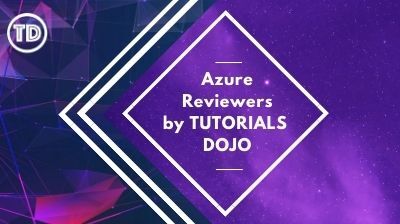Last updated on July 3, 2023
Azure SQL Cheat Sheet
- A fully managed database built upon the SQL Server engine.
- SLA durability up to 99.995%.
- SQL Databases Resource type:
- Single Database – offers serverless and hyperscale storage (up to 100TB).
- Elastic Pool – a collection of databases with a shared set of resources.
- Database Server – manage groups of single databases and elastic pools.
- SQL Managed Instances are for migrations “lift-and-shift” to the cloud.
- The features of both SQL Server database engine and Azure SQL are available in SQL Managed Instance.
- PaaS benefits – Azure will handle all infrastructure management.
- Business continuity – the data are protected with automated backups.
- Security and compliance – supports native VNet implementation and it is exposed only through a private IP address.
- Management operations – automatically deploy new instances, update instance properties, and delete instances that are no longer needed.
- Automate the migration of existing SQL Server instance to SQL Managed Instance with Azure Data Migration Service
- Azure Hybrid Benefit for SQL Server allows you to exchange existing licenses to get discounted rates on SQL Managed Instance.
- The features of both SQL Server database engine and Azure SQL are available in SQL Managed Instance.
- SQL Virtual Machines are used for applications requiring OS-level access.
- Endpoint: <server_name>.database.windows.net
- vCore-based service tiers:
- General Purpose is for common workloads.
- Hyperscale is appropriate for online transaction processing (OLTP) and hybrid transactional analytical workloads (HTAP).
- Business Critical is best for OLTP applications with high transaction rates and low IO latency.
- Azure Hybrid Benefit for SQL Server enables you to use your SQL Server licenses to pay a reduced rate on Azure SQL.
- Azure Data Studio is a modern cross-platform database tool with customizable code snippets, lightning-fast IntelliSense, useful peek definitions, and an integrated terminal to run other SQL tools.
Monitoring
- You can use Intelligent Insights to continuously monitor your Azure SQL usage and detect disruptive events that may lead to poor database performance.
- Azure SQL Analytics can be used to monitor your databases across multiple subscriptions. It can collect and visualize key performance metrics of your databases and enables you to create custom monitoring rules and alerts.
- Automatic tuning in Azure SQL continuously monitors queries executed on your database, and automatically improves the performance using artificial intelligence.
Networking
- Private endpoint connections provide access to all databases in the server.
- Allow communications from all resources inside the Azure boundary with firewall rules.
Azure SQL Security
- You can use Advanced Data Security (ADS) for data classification, vulnerability assessment, and advanced threat protection.
Azure SQL Pricing
- The resources are billed hourly at a fixed rate based on the service tier and compute size you choose.
- You are billed for outgoing Internet traffic.
Validate Your Knowledge
Question 1
Question Type: Single choice
Note: This item is part of a series of questions with the exact same scenario but with a different proposed answer. Each one in the series has a unique solution that may, or may not, comply with the requirements specified in the scenario.
A company is migrating all its applications and data to Microsoft Azure. There is a strict requirement that the Azure environment must only be comprised of platform-as-a-service (PaaS) solutions to minimize the amount of administrative effort in managing the underlying resources.
Solution: Deploy the applications using the Azure App Service and migrate the data to Azure SQL databases.
Does this solution comply with the requirement?
- Yes
- No
Question 2
Question Type: Multiple-choice
An organization is planning to migrate all of its servers and data to Azure.
You need to recommend a solution to only use Software-as-a-Service Azure products that will support the planned migration.
Solution: Deploy Azure virtual machines and Azure SQL Database.
Does this meet the goal?
- Yes
- No
For more Azure practice exam questions with detailed explanations, check out the Tutorials Dojo Portal:
Azure SQL Cheat Sheet Resources:
https://docs.microsoft.com/en-us/azure/azure-sql/azure-sql-iaas-vs-paas-what-is-overview
https://azure.microsoft.com/en-us/services/sql-database/





















